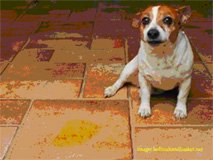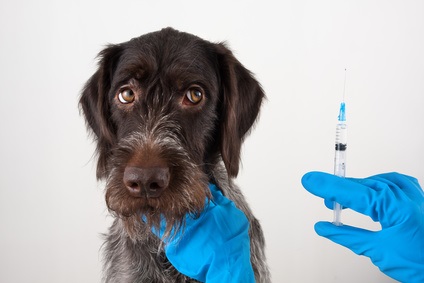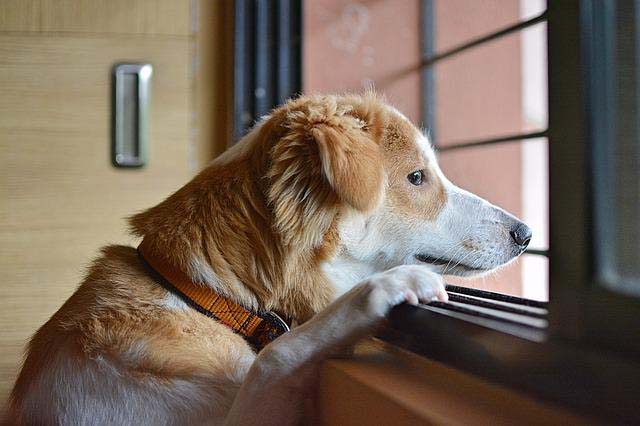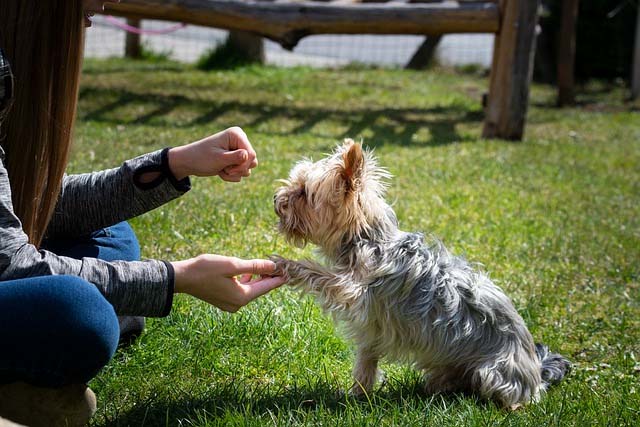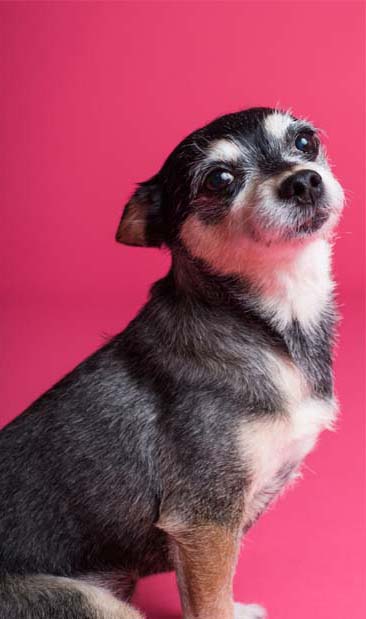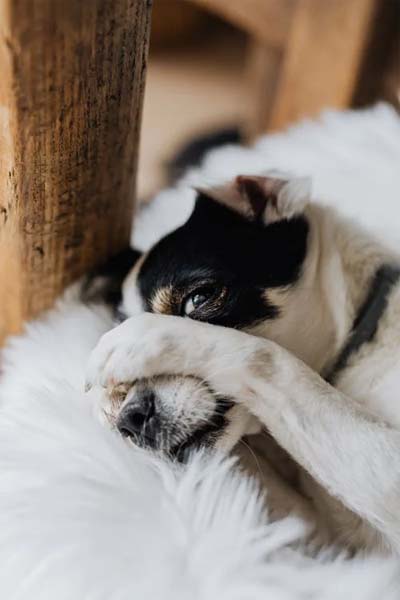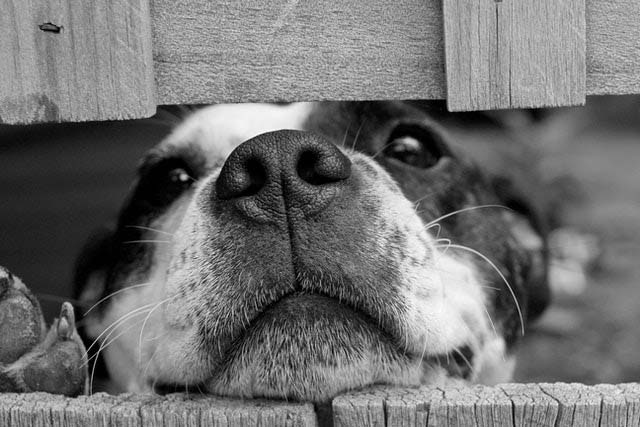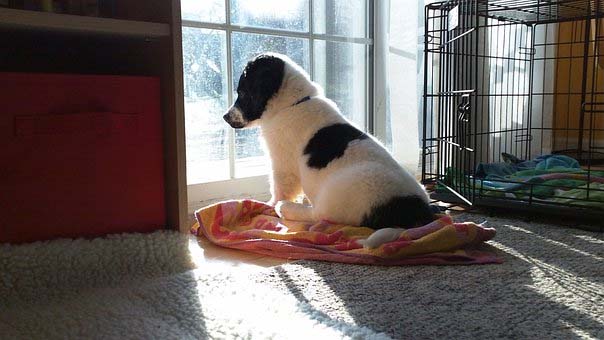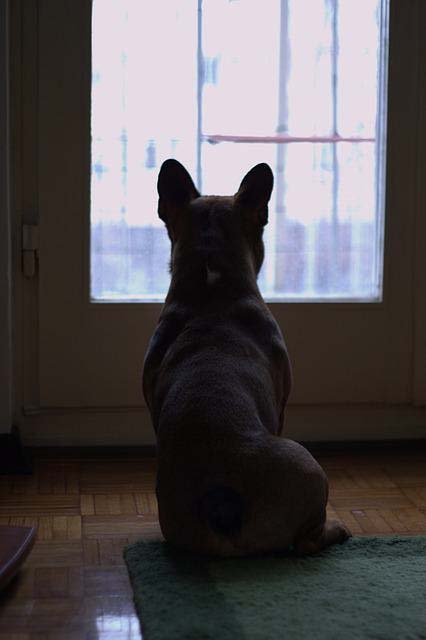Adult Dog Urine?
6 ways to Help Alleviate
Adult Dog Urine 'Accidents!'
Housetraining a puppy is not an easy task. But what about when adult dog urine 'accidents' begin to happen indoors? This is a very frustrating and not uncommon situation that can occur after adopting an adult dog from a shelter or from another home (as well as with dogs in general as they age).
Housetraining may not have been a concern or a problem in the dog's former or younger life but if it becomes a problem for you now or in the future, here are some suggestions that may help you in addressing the possible causes of these 'accidents' and to start working on solutions:
#1
VISIT a VETERINARIAN
This should be your first step!
- There could be several medical (both physical and emotional) reasons why a dog may urinate in inappropriate areas in the home. Do not start training or re-training a new-to-you dog until medical issues such as a urinary tract infection or the possible onset of canine cognitive dysfunction have been eliminated.
- Your dog may just be marking the new territory. All dogs do this naturally, but it is most commonly seen in unaltered males. If your dog has not been spayed or neutered, it might be time to consider the surgery. It can often eliminate marking behavior in dogs.
- Your new-to-you dog may not have been completely housebroken in his or her former home.
- It is possible your dog may miss you when you are gone. See Step #4 below.
- Loud noises outside may scare your dog. See Step #4 below.
- Geriatric dogs can suffer from natural aging conditions making it harder for them to hold their urine. Your geriatric dog may require drugs to help end or minimize soiling 'accidents.'
#2
ELIMINATE ODORS
Make every effort to eliminate old urine odors so that your dog can't smell past accidents. Please see a professional rug or carpet cleaning company such as ABC for more help with this problem.
#3
RESTRICT AREAS in the HOME WHERE the DOG STAYS
WHEN YOU ARE NOT THERE
Make sure your dog has sufficient access to appropriate elimination areas.
Keeping your dog off carpeted areas, if possible, would be a good solution. Dogs may be less likely to go on a hard surface, but those adult dog urine 'accidents' would certainly be much easier to clean up if that happens.
Dogs also have a natural desire to keep their personal area clean so an exercise pen or a baby gate to section off an area of your home would make it easier for both you and your dog. Don't forget to include bedding, water, and anything else that would make your dog feel comfortable when you are not able to be there. Please see crate training below under Step #5.
Thoroughly clean any hard surfaces in the home that your dog has urinated on. Dogs tend to mark the same areas over and over again so use powerful cleaners to wipe away any scent that might tempt your dog to repeat the unwanted behavior. (Please see a professional firm such as ABC for soiled soft surfaces such as carpeting and rugs.)
#4
UNDERSTAND ANXIETY
Anxiety about certain outside noises and separation anxiety can cause urine 'accidents.'
NOISE ANXIETY:
Many dogs can develop anxiety to the sound of outside noises, especially that of thunderstorms, construction or traffic noises. If the noise is temporary, such as construction noises, it might be possible to remove the dog to somewhere else, such as a doggy daycare facility, when you are not home.
If the noise is consistent, a possible solution might be soothing music. (Check out Through a Dog's Ear).
SEPARATION ANXIETY:
Limit the length of time you will be gone or make other arrangements for your dog if you are going to be longer than usual. Here, again, is where doggy daycare can be helpful. Contracting with a neighbor or professional dog walker to come in during the day to take your dog out may help alleviate his or her anxiety as well.
#5
NEVER PUNISH YOUR DOG FOR HAVING ACCIDENTS!
This action can lead to the dog learning that people are not safe and are unpredictable and may even make the dog afraid to go potty in front of you, even outside. This can actually lead to more frequent indoor adult dog urine 'accidents.'
This is most important in the case of geriatric dogs, as above, where drug treatment may be necessary. Behavior modification, mentioned below in Step #5, will most likely not be effective in this case.
An adult dog (especially a newly adopted one) needs the comfort and serenity of a secure and loving home. Punishment for accidents that may not be the dog's fault should never be an option.
#6
BEHAVIOR MODIFICATION
May Be the ANSWER
Behavior modification may be the answer for you and your dog. Simply give your dog positive reinforcement every time he or she urinates in an appropriate area. That can be a tasty treat, a loving word, a gentle stroke, etc.
On the other hand, a negative stimulus can be given in response to a dog's inappropriate urination. This can be by startling the dog with a loud noise such as clapping your hands. You might also try interrupting the dog with a firm 'no' and immediately taking him or her outside.
NEVER, EVER use physical harm as punishment. As mentioned above, this could encourage fear-induced urination.
It is up to you, the owner, to address bad behavior by managing the dog's environment and by providing the training needed for better behavior (after medical intervention has taken place).
Make sure to supervise your dog when you are with him or her and keep your dog confined when you are not. Crate training is an excellent behavior modification technique because dogs generally do not like to urinate where they sleep or eat, and the dog will most likely hold its urine until you arrive home.
Be consistent with both positive and negative behavior modification. Most importantly, do not reprimand your dog for urinating in the home unless you catch him or her in the act. A dog will not understand what he or she did wrong if the punishment is delayed.
ABC CAN HELP!
Removing urine from wall-to-wall carpets and rugs can be both tricky and expensive.
Urine removal from wall-to-wall carpeting is labor-intensive and time-consuming. New carpeting or hard flooring may be the best option in some cases.
ABC Oriental Rug and Carpet Cleaning Co. can help with the urine odor removal, especially from handmade rugs. (Urine odor removal from synthetic and tufted rugs will often exceed the value of these rugs and is generally not recommended.) Unfortunately, urine stains are usually permanent.
In order to minimize the damage from those adult dog urine 'accidents' on carpeting and rugs, always thoroughly blot the affected areas with absorbent material as soon as possible. Do NOT rub and make sure to blot from the outside of the area to the center so as not to spread the urine. The use of over-the-counter odor eliminators and urine removers may actually set many stains.
For a thorough explanation of urine odor removal and stains and ABC’s Urine Odor Removal process, please click here.
Top of Adult Dog Urine 'Accidents' - 6 Ways to Alleviate
"The Cleanest Clean You've Ever Seen."
by
ABC Oriental Rug & Carpet Cleaning Co.
130 Cecil Malone Drive Ithaca, NY 14850
607-272-1566
